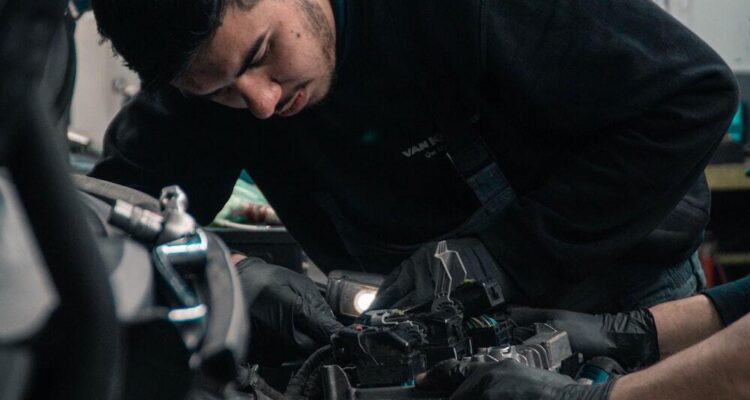If you are in the automotive field, you have got knowledge under your belt. Yet, when picking a training program, you might find yourself getting choosy. You want more than just book smarts. Hands-on experience and respected certifications play vital roles, too.
The market offers countless options, each claiming to be top-notch; it can be overwhelming. The best route would be aligning your choice with industry standards and future job trends. With smart decisions today, you will pave the way for tomorrow’s opportunities.
This guide unravels what sets excellent programs apart from ordinary ones, so keep reading to discover strategies tailored for you.
Reputation Matters
A school’s reputation is like a well-tuned engine, it drives your career. Automotive professionals often choose programs from institutions with strong track records. Recognized schools typically have connections with industry leaders and updated curriculums that match market needs.
Look for accreditation and endorsements by respected bodies. These add credibility and signify adherence to high standards. Former student reviews offer insight into a program’s real-world effectiveness.
Faculty experience plays an important role, too. Instructors should be seasoned experts who bring practical knowledge to their teaching methods. Schools boasting partnerships with leading automotive companies often provide networking opportunities that enhance job prospects post-training.
Course Curriculum Counts
Once the reputation is clear, dive into the course curriculum. This is where theory meets practice. A well-structured curriculum includes both foundational knowledge and cutting-edge topics in automotive technology. Look for courses that cover everything from basic mechanics to emerging trends like electric vehicles and autonomous systems.
Incorporating industry certifications into the program can add value, preparing you for specific roles immediately upon completion. Consider how classes are delivered; interactive learning modules often beat passive lectures.
An emphasis on problem-solving skills prepares you for modern technicians’ real-world challenges. Also, pay attention to course content updates, which reflect technological advancements or regulatory changes within the auto sector.

Hands-On Experience is Key
Upon evaluating the curriculum, focus on the hands-on experience offered. Practical skills are invaluable in the automotive world. Programs that provide extensive lab work and real-world projects give you an edge.
Check if workshops include modern tools and diagnostic equipment. Exposure to these technologies prepares you for current industry demands. Internships or apprenticeships with reputable companies enhance this aspect further.
For example, most diesel tech schools emphasize practical training because they focus on heavy-duty vehicles. So, if you want to join one, ensure they offer comprehensive engine diagnostics as part of their hands-on learning. Additionally, instructors who actively engage students during practical sessions create a dynamic learning environment where technical proficiency and theoretical knowledge flourish.
Certification Adds Value
Another crucial factor is industry certification. Many employers seek candidates with recognized credentials, as these signify a certain level of expertise and reliability. Certification can bridge the gap between education and employment by validating your skills.
Ensure the program you enroll in aligns with highly regarded industry certifications like ASE (Automotive Service Excellence). A curriculum incorporating certification exam preparation boosts confidence and increases pass rates among graduates.
Specialized certifications in areas such as brake systems or engine performance enhance career prospects further, setting you apart from peers. So, look beyond certification to go for specialized certification.
Cost and Financial Aid Considerations
Understanding the cost of a program is a vital step in choosing one. Tuition fees, material costs, and other expenses can quickly add up. Research different programs to see what financial commitment each requires.
Financial aid opportunities often play a significant role in decision-making. Scholarships, grants, or loan options might be available to help ease the burden of tuition costs, so be on the lookout for such.
Some schools offer payment plans that allow you to pay for your education over time without accruing interest. Weigh these options carefully against long-term earning potential once trained and certified to see if the programs you take offer value for money.
Looking Forward
Choosing the right training program is an investment in your future. As you sift through options, keep an eye on industry trends and emerging technologies. Staying ahead of these changes ensures that your skills remain relevant. The automotive sector constantly evolves, with innovations around every corner.
Remember to connect with peers and mentors who can offer insights and advice. Trust your instincts but make informed decisions based on facts and experiences shared by others in the field.






